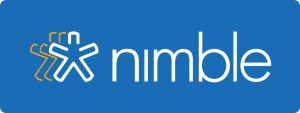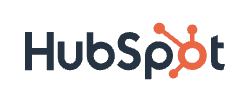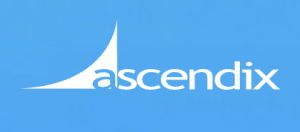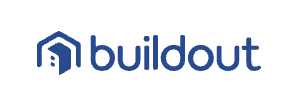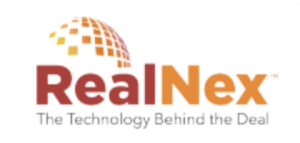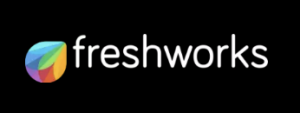Picking the right commercial real estate CRM sure is a challenging task. That’s why we put together this guide – to break down the top CRM tools out there, looking into what makes each one tick, where they shine, and where they might not hit the mark, along with some other stuff you’ll want to think about before making your pick.
What is a CRM for Commercial Real Estate Brokers?
A CRM for commercial real estate brokers isn’t just any old tool; it’s like the Swiss Army knife for the trade. It handles all the nitty-gritty of the business, from keeping tabs on clients to juggling property listings and deals, all the way to breaking down market trends. It’s the whole package, designed to make life easier for real estate pros.
The Importance of a CRM for Commercial Real Estate Brokers: Why Use It?
Having the right CRM can level up your game. It’s all about making those client relationships smoother, getting a grip on your deals and listings, and keeping everything about managing properties neat and tidy. Think of it as your go-to spot for everything related to your business.
Pros of Using a CRM for Commercial Real Estate Brokers
Having a CRM that just works for you and your team is like hitting the jackpot. Here’s the scoop on what you’re getting:
- Kicking Client Management Up a Notch: Imagine never dropping the ball on what you discussed with your clients or their last request. A CRM is like your personal assistant, keeping tabs on every chat, preference, and past move to make your service feel like it’s tailor-made for each client.
- Smoothing Out the Daily Grind: Say goodbye to data entry and repetitive tasks. It’s all about working smarter, not harder by automating what can be automated and setting up reminders for everything important.
- Networking Like a Pro: This isn’t just about managing what you’ve got; it’s about expanding your horizons. The best CRMs are pros at helping you prospect and network, connecting you with the right people, and opening doors to new opportunities.
- Customization is Key: Every brokerage has its vibe and its way of doing things. The best CRMs out there get that and let you tweak and tune until it feels just right for your team.
- Tech Integration: We’re talking seamless connections with your favorite apps and tools, making sure your CRM is the perfect fit in your tech ecosystem.
Key Features to Look for in a CRM for Commercial Real Estate Brokers
When you’re on the hunt for the perfect CRM for your commercial real estate business, there are a few game-changers you’ll want to keep an eye out for. Here’s the lowdown on what makes a CRM stand out from the crowd:
- Deal Tracking Deluxe: You want something that keeps all your deals in one spot, showing you the ins and outs of each one, so you never miss a beat.
- Client Connection Magic: A CRM that remembers the little details about your clients, like their last call or what they’re looking for in a property, can make your interactions feel super personalized.
- Document Dynamo: Say adios to paper chaos. The right CRM turns your document management into a sleek, organized process, ensuring every contract and listing is just a click away.
- Integration Station: Your CRM should play nice with the other tools in your toolbox, syncing up with email, calendars, and whatever else you use to keep your business humming.
- Custom Fit: Not every brokerage works the same way, so a CRM that lets you tweak and adjust settings is a must.
- Mobile Mastery: In real estate, you’re always on the move. A CRM with a killer mobile app means your office is wherever you are, keeping you connected and in control.
Keep these features in mind, and you’ll find a CRM that’s not just a tool, but a game-changer for your commercial real estate biz.
9 Best CRMs for Commercial Real Estate Brokers
Nimble CRM
Suitability: Perfect for CRE brokers and teams looking for a CRM that is truly relationship-focused. Nimble effortlessly combines social media insights with powerful networking and client management tools.
Key Features: Nimble stands out with its browser extensions that allow you to work where you work, like straight from your inbox or anywhere on the web, including social media. Contact management, deal tracking, and email marketing functionalities are all wrapped up in a modern interface.
Advantages: The integration with social media provides a unique edge in understanding client needs and engaging with contacts. It also offers great scalability, making it suitable for both small teams and larger agencies. Nimble also stands out with its customizable multiple workflows with automations allowing each team member to easily manage repeatable business processes and save valuable time.
Limitations: While strong in social insights, networking, and customization, it might lack some of the more in-depth, real estate-specific features like property management or detailed transaction tracking.
Unique Selling Point: Nimble’s ability to create live profiles on people and companies from anywhere on the web. It offers a richer, more personalized engagement strategy.
Pricing: Plans start at $24.90 per seat/month on an annual plan, offering great value with its comprehensive feature set.
ClientLook
Suitability: Ideal for CRE brokers focused on client relationships and deal tracking.
Key Features: Client interaction tracking, deal collaboration tools, and integration with leading commercial real estate services.
Advantages: ClientLook specializes in client relationship management, with an emphasis on collaboration and integration, making deal tracking and management seamless.
Limitations: May lack some of the broader marketing and property management features found in other CRMs.
Unique Selling Point: The virtual assistant feature and the strong community of users provide unique support and networking opportunities within the industry.
Pricing: Pricing details are available upon request, with a free trial option to get started.
HubSpot
Suitability: Well-suited for commercial real estate brokers looking for an all-in-one CRM solution to manage client relationships, streamline transactions, and support targeted marketing efforts efficiently.
Key Features: Advanced marketing features, and personalized marketing campaigns.
Advantages: The platform facilitates creating conversion-optimized websites, and automating manual tasks to increase productivity and facilitate strategic operations.
Limitations: HubSpot’s broad feature set and enterprise focus might be overwhelming and cost-prohibitive for smaller brokerages or those with limited CRM needs.
Unique Selling Point: A truly scalable CRM solution with built-in marketing tools, extensive app integrations, and robust security features, making it an adaptable platform for real estate agencies looking to grow.
Pricing: HubSpot offers a very limited free version as well as other plans more suitable for smaller companies. The pricing for commercial real estate businesses, particularly at the enterprise level, can be steep, starting at $60,000/year for up to ten users and 10,000 leads. There are fees involved for higher plans.
AscendixRE CRM
Suitability: Designed for CRE professionals who need a robust, real estate-focused CRM solution.
Key Features: Property and lease management, client portals, advanced reporting.
Advantages: Real estate-centric features, and high customizability.
Limitations: Complexity may require a learning curve.
Unique Selling Point: Tailored specifically for the CRE industry with comprehensive property management tools.
Pricing: Custom pricing based on features and user count.
Buildout
Suitability: Ideal for CRE brokers needing a comprehensive CRM with integrated marketing and deal management tools.
Key Features: Comp data, Includes advanced marketing capabilities, deal management, and enhanced workflows, enriched by recent acquisitions like Apto.
Advantages: Streamlines CRE transactions, from prospecting to closing deals, improving operational efficiency and deal-closing speed.
Limitations: Its specialized focus on CRE might limit its applicability outside the industry.
Unique Selling Point: Combines robust CRM functionalities with strategic acquisitions, offering a tailored solution for CRE professionals.
Pricing: Need to contact sales for their CRM product pricing.
RealNex
Suitability: Ideal for CRE professionals seeking an all-in-one solution for marketing, management, and analytics.
Key Features: Marketing tools, CRM, financial analysis.
Advantages: Comprehensive suite of tools, integrated platform.
Limitations: The broad range of features might be overwhelming for some users.
Unique Selling Point: A complete ecosystem for CRE with a wide range of integrated tools.
Pricing: Pricing is available upon request, with tiered options based on features.
Freshworks CRM
Suitability: Suitable for CRE brokers looking for a CRM with strong sales and marketing automation features.
Key Features: Sales automation, marketing automation, contact management.
Advantages: User-friendly, strong automation features.
Limitations: Less tailored to CRE-specific needs.
Unique Selling Point: Strong sales and marketing automation capabilities within a user-friendly interface.
Pricing: Starts at $29 per user/month with various tiers.
VTS
Suitability: Best for CRE professionals needing a comprehensive leasing and asset management platform.
Key Features: Lease management, deal tracking, tenant experience solutions.
Advantages: Specialized in leasing and asset management, strong tenant engagement tools.
Limitations: Focuses more on leasing and asset management than broader CRM functionalities.
Unique Selling Point: A leading platform for lease and asset management in CRE.
Pricing: Custom pricing based on the size and needs of the business.
SharpLaunch
Suitability: Good for commercial real estate firms that need a powerful digital marketing and property management platform.
Key Features: Property websites, document management, email marketing.
Advantages: Strong focus on marketing and digital presence.
Limitations: More focused on marketing and less on traditional CRM functions.
Unique Selling Point: Robust digital marketing tools tailored for CRE.
Pricing: Available upon request, depending on the services and scale.
Each CRM on this list caters to different aspects of commercial real estate, from client management and deal tracking to marketing and asset management. Each of these CRMs brings something unique to the table for commercial real estate brokers, from Nimble’s social media prowess to Apto’s deep real estate focus.
How to Choose the Right CRM for Commercial Real Estate Brokers
Choosing the right CRM for commercial real estate brokers involves a blend of understanding your specific business needs, industry trends, and the latest technological advancements.
Start by assessing your brokerage’s size, transaction volume, and specific challenges, such as client management or property tracking. Industry data shows that CRM adoption can lead to a 29% increase in sales on average, underscoring the importance of selecting a system that aligns with your sales and marketing strategies.
A CRM that seamlessly connects with your existing tools—like email, calendars, and property databases—can increase efficiency by up to 34%.
Also, consider scalability and customization options, ensuring the CRM can grow and adapt to your business. Finally, user adoption hinges on ease of use and support, so opt for a CRM with a user-friendly interface and comprehensive training resources to maximize your investment.
We also recommend reading up on peer reviews on review sites like G2 and Capterra.
Implementing CRM for Commercial Real Estate Brokers
Implementing a CRM system for commercial real estate brokers is a strategic move that requires careful planning and execution.
Start by clearly defining your objectives and mapping out how the CRM can align with your brokerage’s workflows and processes.
Engagement from all levels, especially key stakeholders, is crucial for successful adoption, so involve your team early in the decision-making process.
Training is a cornerstone of effective implementation; ensure comprehensive training sessions are organized to familiarize your team with the CRM’s features and functionalities.
Data migration is another critical step—ensure your existing data is accurately transferred to the new system, maintaining data integrity and minimizing disruptions. Setting up integrations with other tools and platforms your brokerage uses is essential for creating a cohesive technology ecosystem.
Regularly monitor the CRM’s performance and gather feedback from users to make necessary adjustments and optimize its use. Remember, the goal is not just to implement a new tool but to enhance your brokerage’s efficiency, client management, and overall performance.
Examples of Using CRM for Commercial Real Estate Brokers
Implementing a CRM in commercial real estate brokerage can transform everyday operations and strategic decision-making. Here are some examples, showcasing the impact of CRM adoption:
- Enhancing Client Relationships: Segmenting a client database by investment preferences, communication styles, and past transactions enables personalized marketing campaigns, resulting in an increase in client engagement and an uptick in repeat business.
- Streamlining Deal Management: Creating a centralized deal tracking system allows for real-time updates on deal stages, collaborative document management, and automated reminders for critical deadlines. The result can be a significant reduction in time-to-close for deals and a more cohesive team workflow.
- Operational Efficiency: Integrating a CRM with other operational tools, including email platforms, calendar apps, and financial software streamlines internal processes, reduces manual data entry, and improves overall operational efficiency.
- Client Retention Strategies: Using a CRM’s data analysis capabilities to identify at-risk clients based on interaction frequency, transaction history, and engagement levels. By implementing targeted retention strategies can increase client retention rates.
These examples highlight the versatile applications of CRM systems in enhancing client relationships, optimizing deal management, leveraging market insights, improving operational efficiency, and executing effective client retention strategies in the commercial real estate sector.
In Summary..
A CRM system designed for commercial real estate brokers can transform your business, offering a competitive edge in client management, operational efficiency, and market analysis. By selecting a CRM that fits your specific needs, you can streamline your operations and focus on what you do best—closing deals and managing properties.

